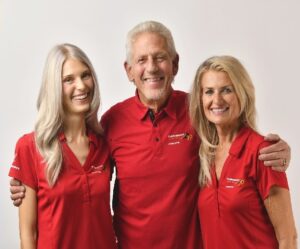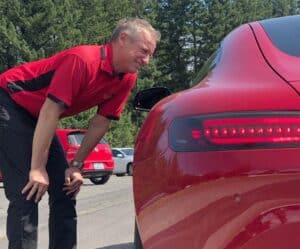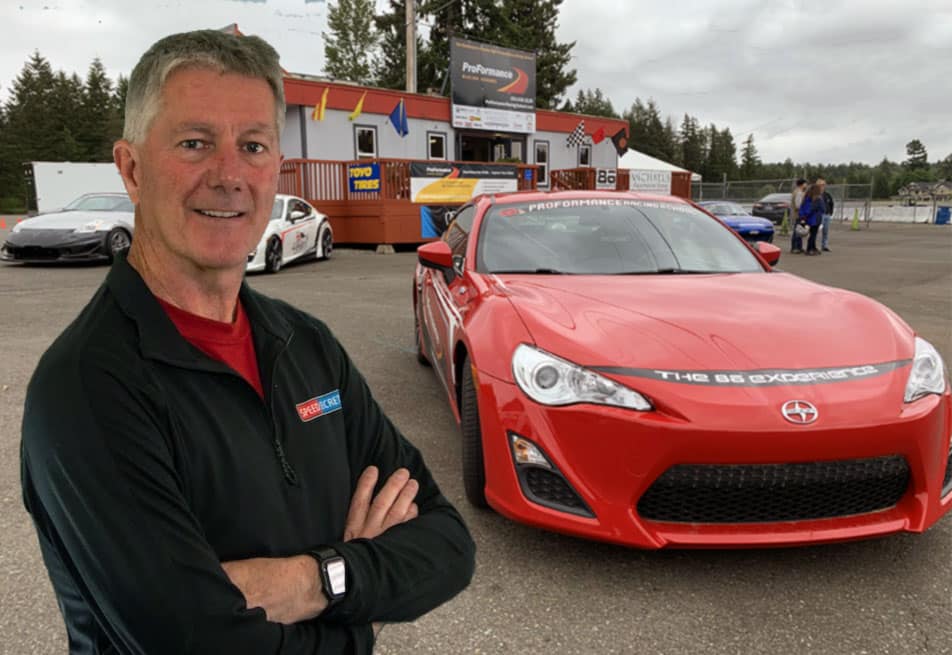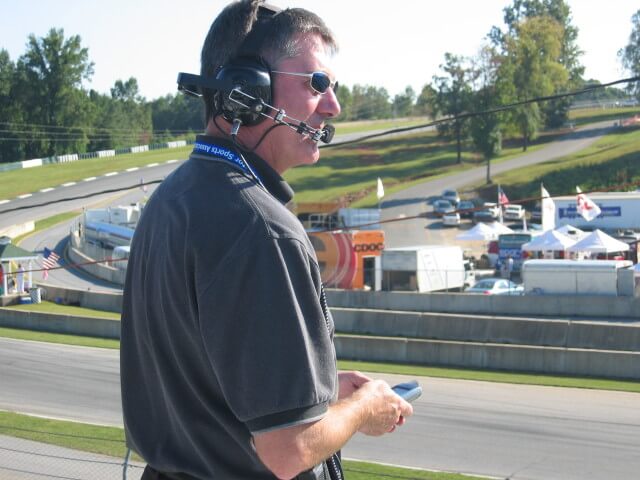The man behind Speed Secrets shares his thoughts on coaching, racing, and his long history with ProFormance.
Ross Bentley tunes drivers the way some people tune cars. Since 1998 his Speed Secrets series of books – and subsequent podcast and e-courses – have been helping drivers at all levels overcome stumbling blocks, conquer their fears, and clear their own unique paths to racing excellence. While his acclaim is international, Ross is based in the Northwest and has a unique connection to ProFormance through his long friendship with its Chief Instructor Don Kitch, Jr.
Learning That It’s All in the Mind
Like many drivers, Ross Bentley came up through racing with a very limited budget. “I had to make up for the fact that I couldn’t go out testing and practicing as much as some other drivers.” That meant addressing the mental aspects of driving to get the most out of the car. MasterDrive founder Ronn Langford introduced him to some concepts. Ross also studied everything from sports psychology to kinesiology to human learning factors and neuroscience on his own. A self-confessed learning junkie, he looked at everything that might give him an edge over a driver with a bigger budget.
Ross shared what he learned through coaching, and that’s where his story diverges from that of many other drivers. Ross found that he enjoyed teaching performance driving as much as doing it.
Instructor vs. Coach: Outside vs. Inside
Ross Bentley terms himself a coach rather than an instructor. The latter, a mainstay of any racing school, imparts knowledge and develops vital skills. Coaches play a different role in the evolution of a race driver.
“Instructors tend to work from the outside in – they take information from the outside and give it to a student.” That’s how you learn where the apex of a turn is, how to avoid oversteer, and countless other aspects of performance driving. “Coaches do that, but they also teach from the inside out. They draw information out of you, ask the right questions, help you develop a deeper understanding of your driving. They do more asking than telling.”
Working With Don Kitch, Jr.
Don Kitch considers his long friendship and professional association with Ross a valuable part of his life. Colleagues and friends since 1994, the two men have worked, coached, and raced together.
“When you’re working at the highest levels of motor racing, there’s just not much you can tell a driver about the physical act of driving the racecar,” says Don. “At this point, it is “the mental game”-the mental disciplines required to make the car do what you want it to do. Ross’s specialty is to know which screw to turn in the brain to trigger these disciplines.
Ross got the chance to use his screwdriver on Don in 2003, during the Rolex 24 Hours of Daytona race. “Our car was evil to drive, a beast to handle. I told Ross that I had a 7-month-old baby girl back home, that we were going to get hurt in the car. We needed to walk away. Ross said, ‘No, let’s keep working, we’ll get it right.’ He took the lead. We got it right and won the race.
Ross makes no secret of his admiration for Don. “He gets up every morning and does everything with the same passion and energy that he had 30 years ago. He keeps working, making things a little better, a little better. In that way he’s no different from Lewis Hamilton.”
A Man of Few Words
A Ross Bentley coaching session begins with a lot of talking, but as the session continues, the conversation thins out. “What starts out as ‘brake at this point, come off the brake here, turn here’ becomes ‘brake…ease…turn.’ I’ve programmed trigger words in their mind.” Then it becomes even quieter, and Ross just observes. He might even ask a driver to talk to him for a while. As Ross’s confidence in the student increases, the student senses that, and self-trust is born.
“At some point you have to trust yourself. You’ve done all the practice, you’ve done all the work. But some drivers can’t get out of their own way. They’re overly-analytical – they think about every little detail. To those drivers I’ll say, “Drive, stupid! Turn off your brain and drive!
“So much of racing is dictated by your state of mind. Some people consider that ‘woo-woo’ stuff. But the best know it’s true.”
Coaching the Coaches
Ross’s leadership in his field has led him to work with the Motorsports Safety Foundation, helping them create standards for instructors. Standards are needed because people end up teaching performance driving for various reasons. “You need to find out what their objectives are. Some instructors out there are chosen because they’re fast, not because they’re good teachers. Some are instructors because they like to drive, or for financial reasons. But the best ones are there because they love to share what they’ve learned and bring out the best in others. Those are the ones at ProFormance, for instance.”
Adding Technology to the Mix
The racing world Ross entered in the 1990s was different from today’s, in which we have sophisticated tools to help analyze a driver’s performance. “I’ve gone from when there was nothing; I remember mounting a little video camera in my car, and spending three eight-hour days in Indianapolis learning to use an early data system. Now you can buy a system like the Garmin Catalyst that doesn’t even come with instructions. Just push a button and it starts working.”
He also notes that racing simulators are huge, and though drivers sometimes don’t get them at first, they are of real value once you adapt to them. Nevertheless, while these tools speed up the learning process, “what the Lewis Hamiltons and Scott Dixons have is a feel that doesn’t come from looking at squiggly lines on a screen. If you’re too reliant on the data – say your squiggly line indicates that you should be able to go through a corner at 2 mph faster – you’re copying someone else. You haven’t really learned how to do it. When you just copy, you haven’t learned why. If there’s one word that sums up my coaching, it’s the why.” Once you understand the why behind things, the how, the what, and the when become easier.
In Praise of ProFormance
To Ross, the culture of an organization is vital, and that is where ProFormance Racing School shines. “Every driver has a different reason for being there. Some want to constantly learn. Some like socializing in the paddock. Some don’t care about driving – they want to tinker with their car. That’s fine; there’s a place for everybody.” He notes that Don Kitch, along with his wife and co-manager Donna Porada-Kitch, cater to these different types of drivers in a way that also builds the sport, brings new people in, gets them excited, and helps them move up the ranks. “They’ve built an amazing culture around constant learning, about the enjoyment of doing it well, the fun, the community and socializing. For them it’s not about beating your chest and saying I’m the fastest. That’s why, to me, ProFormance is home.”
Can’t get enough of Ross and Don? Hear these two veteran drivers discuss their do-overs and do-agains on this Speed Secrets Podcast. And watch them walk Pacific Raceways and discuss the ins and outs of one of the great race tracks.





